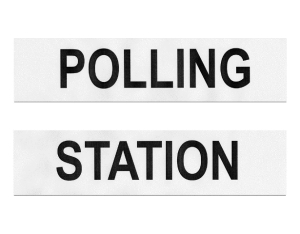The dramatic (35% increase over the last election) in the number of voters who cast their ballots at the advanced polls plays very well into a story about how the election has energized the public and engaged them in our democracy. While this could account for a small proportion of the increase, a caution is in order given some other, more problematic explanations.
Turnout in elections should increase when the race is close (my vote means more) or when the election engages people, but we should be cautious about reading turnout at advanced polls as evidence since voters have been moving in this direction.
We know that the number and proportion of all votes cast at the advanced polls has increased over time. This election is not yet an anomaly. The chart shows that between 1997 and 2008 the proportion of all votes cast at advanced polls has risen from 5 to 11%. Sure, 2008 was only somewhat higher than 2006 but, perhaps 2008 was more of an anomaly.
Certainly in 2006 we saw both turnout and voting at the advanced polls increase but this pattern was not evident in the other elections. In 2008, turnout dropped 6 percentage points but voting at the advanced polls was flat. So an increase in voting at advanced polls is not just about increased interest it is about a change in how we vote.
One of the reasons we are quick to latch onto the idea that the advanced polls are a signal about turnout is that we think of them as an opportunity for voters to cast their ballot and not miss their opportunity given that election day is a work day for many. More people who vote at the advanced polls then reflect the realities of busy lives etc.
There are, however, alternatives  that may help explain the continued rise in the use of advanced polls that are unrelated to turnout. The first is that we have been socialized over time to accept voting early as a reasonable activity. At one time, people were not encouraged to vote at these times.
that may help explain the continued rise in the use of advanced polls that are unrelated to turnout. The first is that we have been socialized over time to accept voting early as a reasonable activity. At one time, people were not encouraged to vote at these times.
The second is that voting at an advanced poll is a way for people who are not really engaged but feel a duty to vote to address their socialization. Over time declining participation reflects a lack of commitment to voting and advanced polls give people who are attached to the idea of voting more opportunity to vote – it does not mean that they are more engaged as a consequence.
From a personality point of view, it might be true that engaged people are more likely to vote early but it is also true that these early voters may simply lack the interest in actually following the campaign.
As more and more people vote at the advanced polls, we are effectively shortening the election campaign. Rather than seeing these people as a sign of a resurgence of democratic participation, it may be a further sign of disengagement – more people who have decided before the campaign is done on how to vote.
Since voting at the advanced polls is increasing regardless of the ultimate turnout, we need to better understand why people are voting early. And the implications.
